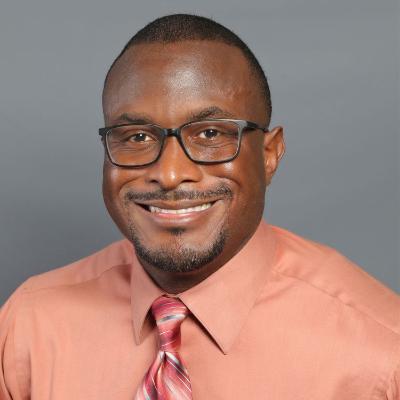
One of the research focuses for Christopher J. Cormier, Ph.D., is on factors contributing to stress and burnout among special education teachers and how to address these issues to improve retention, particularly among special-ed teachers of color. For Cormier, who joined the LMU School of Education faculty in 2022 as an associate professor, the issue is personal.
Cormier began his career as a special-ed teacher in Title 1 schools in Los Angeles, but became dismayed by what he says were unethical and in some cases illegal practices he saw. As early as his student teaching experience, he remembers hearing negative comments about children with disabilities. At one meeting, he recalls, a special-ed teacher said of one of her struggling students, ‘It’s not as if he’s going to college anyways.’ The target of the dismissive comment was only in the fourth grade.

The failure of school systems to meet the needs of differently-abled students—and particularly those who are minoritized—is a reflection of a larger societal problem, Cormier says. When he was a teacher, Cormier would attend meetings where blame was placed on students receiving special education services for holding down overall test scores at a school site. “The reality is that in our society, people with disabilities tend to be viewed as low priority, and those same attitudes are found among many educators,” Cormier says. Ultimately, he opted to pursue a career in academia, where he could effect change through research, teacher preparation, and policy advocacy.
Cormier notes that the shortcomings of the special education system are particularly pronounced in communities of color. “I’ve taught in schools where we were the only class in the building, all the way in the back,” he says. “Try explaining to your students why they’re only ones without air conditioning, or the only ones not invited on a school field trip.” Students from minoritized backgrounds who received special-ed services were often assumed to be “troublemakers” who would surprise other teachers with their good behavior when they did go on school outings. “Too often, the view was that if a student had trouble learning, or acted out, they should go straight to a separate classroom or into the special education system,” he says. “But these challenges don’t necessarily mean that this is where these students belong.” It could mean that the teachers should be more understanding of what’s going on with the student at home, he says, or should find ways to modify their instruction so that the student is more engaged and able to access the material.
While special education services are important, Cormier says, in many cases the processes for assigning students to receive them is not followed. “You need to have first exhausted every measure to provide as much support for the student as possible, and that rarely happens,” he explains. “When a student is struggling, there are tiered supports that are supposed to be implemented before the child is tested to see if they qualify for special-ed services. But that tends not to occur for students from minoritized backgrounds. Instead, they are assigned to the system with the assumption that this is the only answer.”
The frustrations and emotional toll Cormier experienced as a special-ed teacher have fueled his research efforts at LMU, which focus on the social and cultural contexts of minoritized learners and teachers in special education. Cormier is documenting the professional and socio-emotional lives of minoritized teachers, particularly those teaching students who receive special ed services, to identify effective retention strategies. “Recruiting is certainly important, but when they are leaving the field at higher rates, it’s not helping,” he says. Cormier is also interested in better understanding the protective nature of Afrocentric schools. He is currently studying a network of charter schools in Memphis, Tennessee, that emphasizes anti-racist practices and a culturally responsive curriculum, seeking to determine the schools’ impact on the academic outcomes of minoritized students receiving special-ed services.
Cormier also hopes to make a difference by preparing special-ed teachers to take on the challenges they will inevitably face. “It’s important to me to ensure that my teaching reflects a critical eye toward the school system and the complexities involved, because in my own pre-service program, I was taught through a perfect lens, and those best-case scenarios don’t always play out in schools,” he says. Cormier also brings difficult conversations about racialized components of special ed to each of his classes. “Sometimes this makes my students uncomfortable, but I explain that this only helps them better understand the discomfort minoritized students and teachers feel every day,” he says.
That type of transparency is a top priority, as is honestly about the drawbacks and benefits of the profession. “I want my students to understand that being a special education teacher can be very isolating,” Cormier says. “They’re going to have work within a system that, overall and unfortunately, is not optimally set up to support them or their students. At times they’re going to have to go to battle to make sure their students receive the supports they are legally entitled to. But I also want them to know the flip side. As a special-ed teacher, you have the opportunity to develop a unique bond with your students. There is great joy and reward that comes from making a positive impact on their lives.”